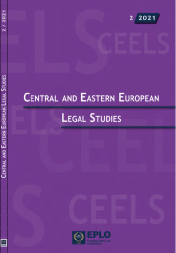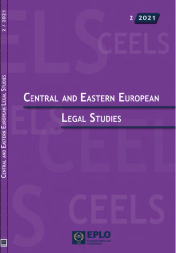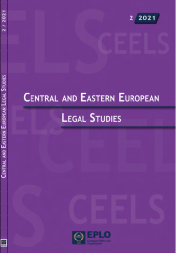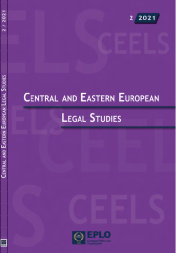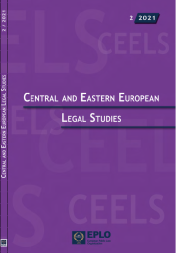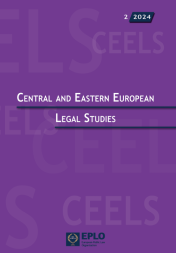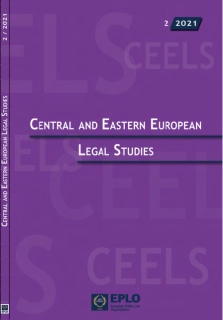
CENTRAL AND EASTERN EUROPEAN LEGAL STUDIES 2/2021
Five articles on topical issues are included in the second issue of the year 2021 of the Central and Eastern European Legal Studies.
The first paper of this issue argues that law, despite its conception as the materialization of ideals of justice into the real world, can be considered also as a specific “social technology” – as an instrument oriented to reaching particular (mostly material) goals, that is, to enable society to reach a larger size and a higher complexity and to obtain a higher level of efficiency in the functioning of the same society. However, considering a parallel development of morality and law and the similar demands on cost-effectiveness, the conflict between them may not be as big as it could seem at first sight. The second article proceeds to a thorough examination of The Health Protection (Coronavirus, Restrictions) (England) Regulations 2020, a statute which was in place in England as a result of the unprecedented situation caused by the coronavirus. The movement restrictions that were hastily put in place should be critically evaluated, in order to ascertain whether the right to liberty was overlooked. It has been found that this fundamental right was respected, which should instil more trust in the democratic process and in the fight against the virus. The following article discusses the harm principle and its importance for liberal criminal law. The article briefly reviews the origin and development of the harm principle, its scientific interpretations, and provides a broader definition of harm; the concepts are understood in the dynamics with the change of time and modern challenges, thus the author deviates from the conservative understanding of the concept of harm, that is, that it should only protect human values. The practical application of the harm principle has occurred repeatedly in various jurisdictions, although observations have shown that this process is slow and inconsistent. Georgian criminal law is today in the process of liberalization at a slow pace and is of interest with regard to the harm principle. The following article deals with the main developments in the Criminal Law of Georgia on sexual offences, judgments of the domestic courts as well as appropriate statistical information related to the rape crimes. The author argues the importance of the amendments in the Criminal Code of Georgia in order to comply with the international standards, especially with the ECHR, and also provides information on the results of a survey about the public awareness on sexual offences. Last but not least, in an article coming from Lithuania the author discusses the institution of proof in tax law of the Republic of Lithuania. The current tax legislation does not contain a definition of evidence and does not determine the probative force of individual measures of evidence when considering tax disputes in pre-trial procedure. However, all factual data accepted for consideration by the body considering the tax dispute should be recognized as evidence. It is emphasized that the Law clearly delineates the obligation of proof between the parties to a tax dispute.
Summary
D. Šmihula, Law as Innovative Technology [IN ENGLISH]
E. Gracias Baptista, Home Alone - The First English Coronavirus Lockdown and the Right to Liberty (Article 5 ECHR) [IN ENGLISH]
T. Gegelia, The Real Impact of the Harm Principle on the Liberalization of Criminal Law [IN ENGLISH]
N. Janezashvili, Sexual Offences in the Criminal Law and Practice of Georgia [IN ENGLISH]
Б. Судавичюс, Institution of Proof in Tax Law of the Republic of Lithuania [IN RUSSIAN]















